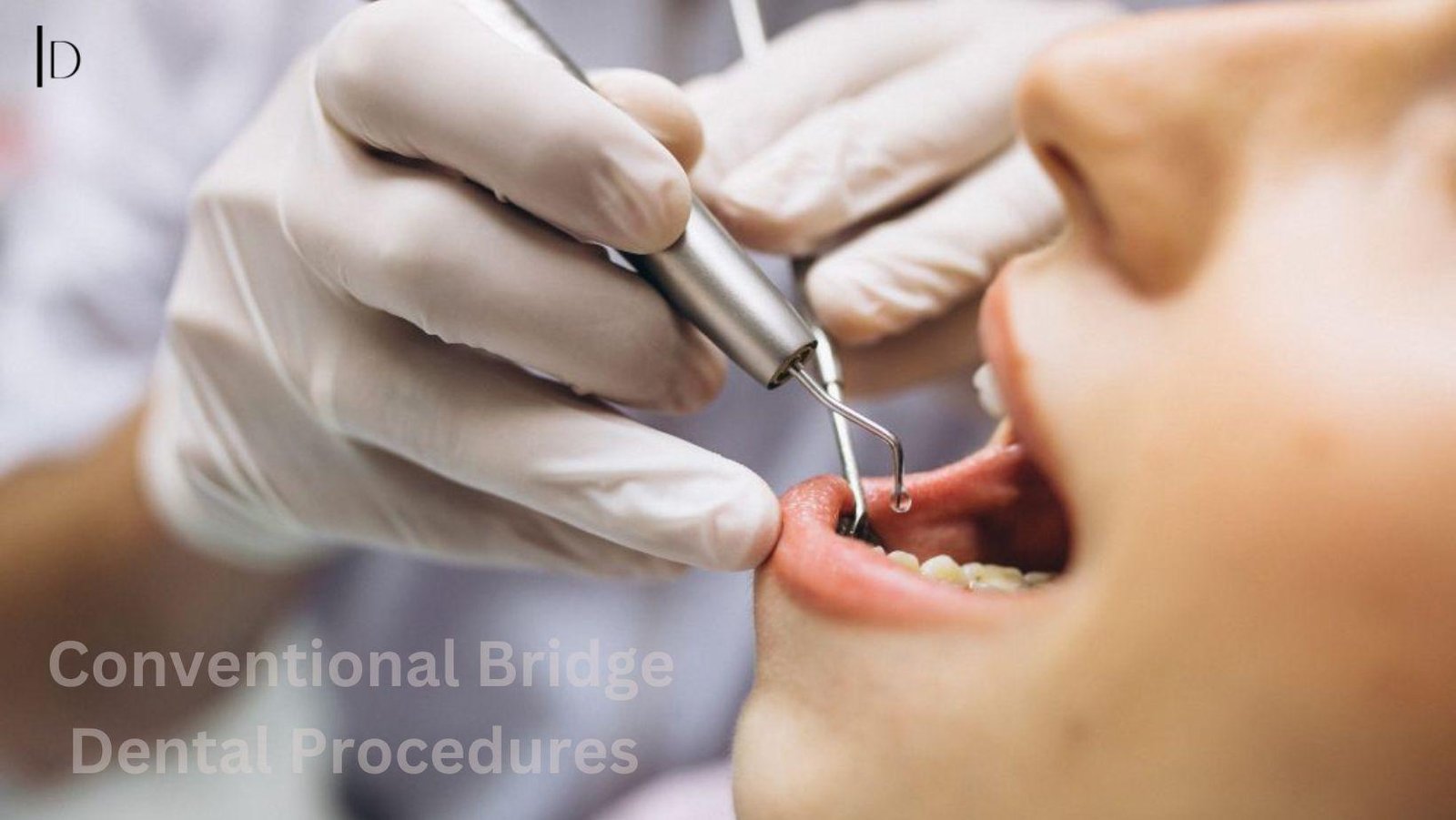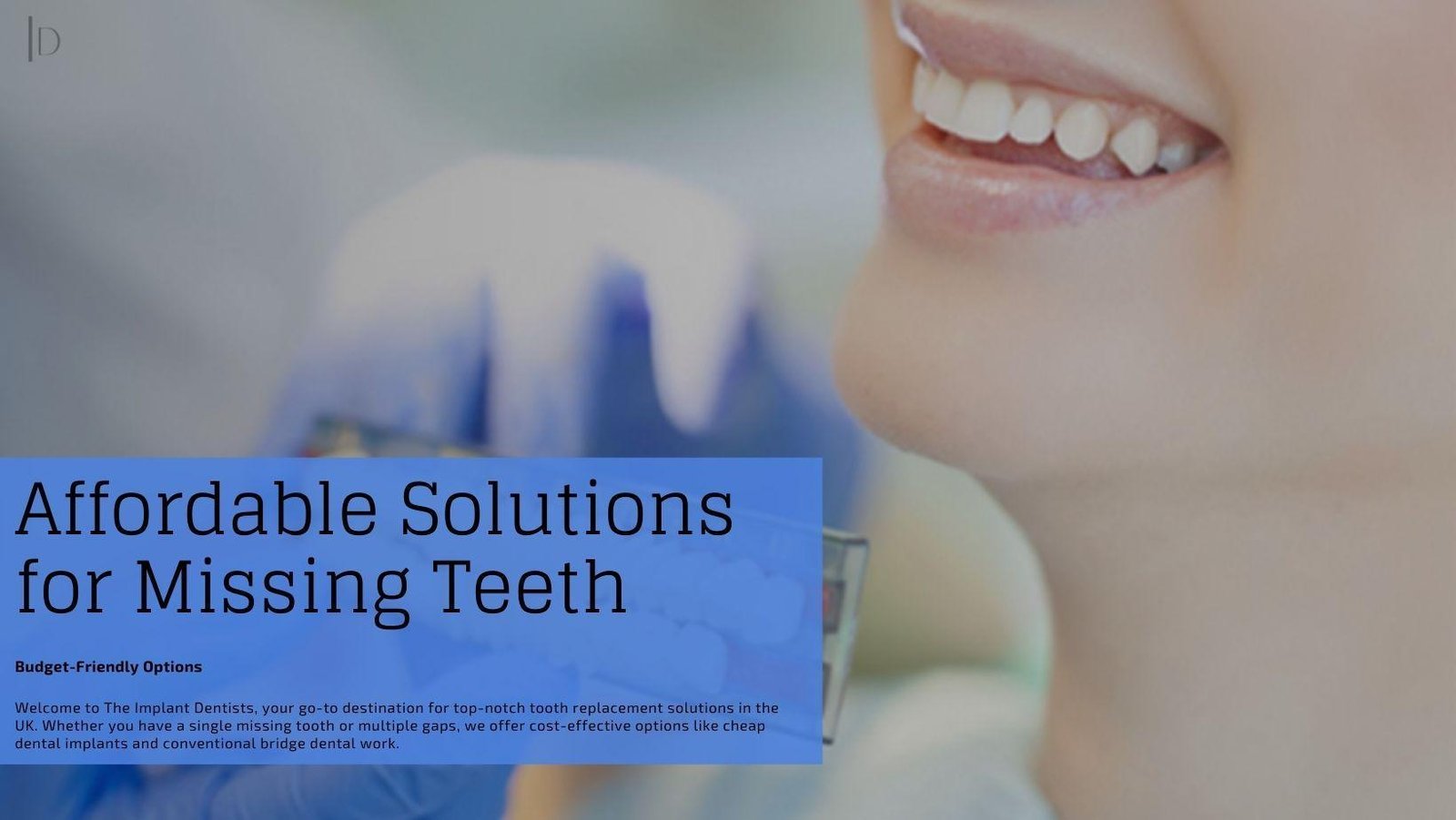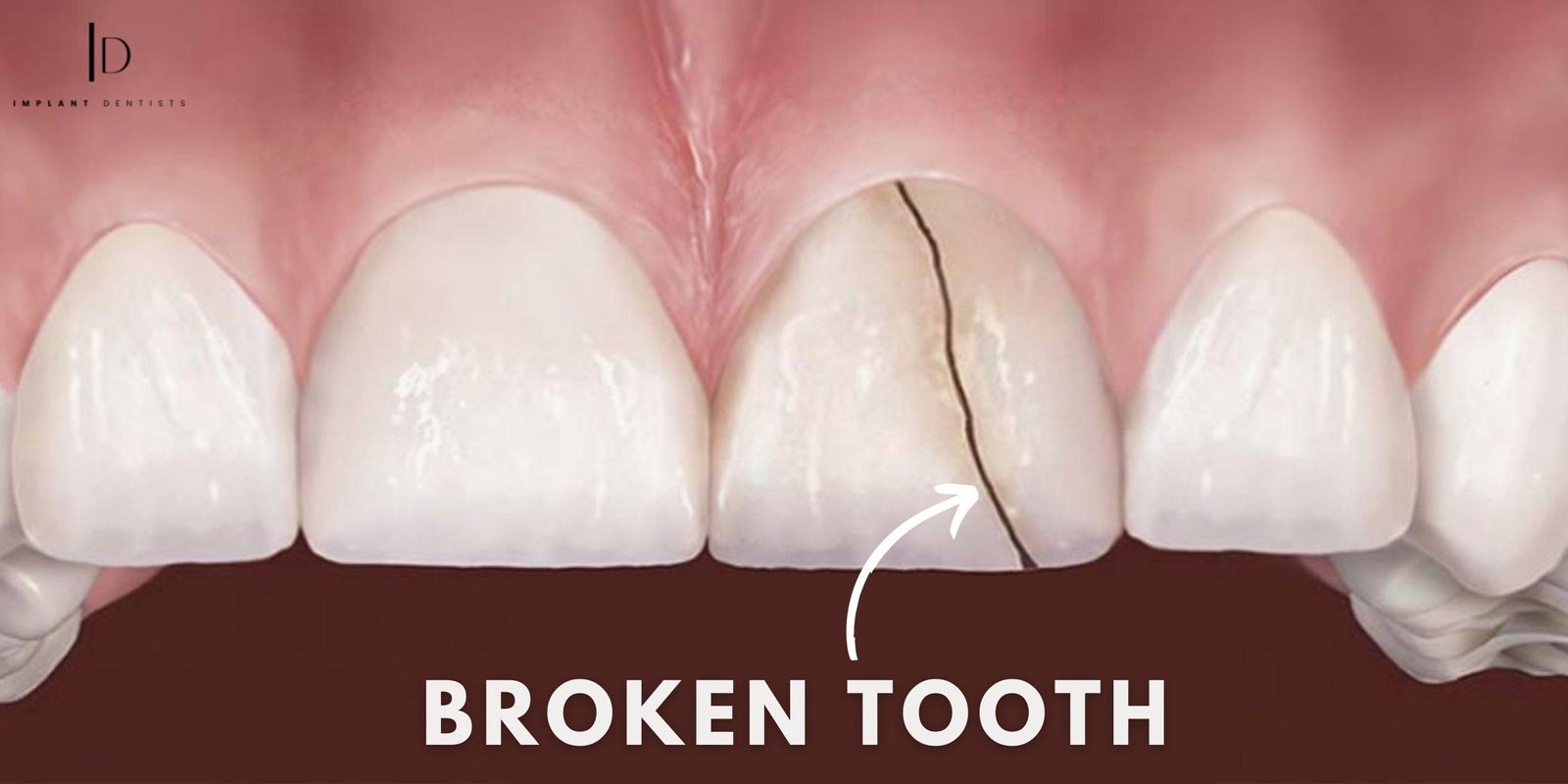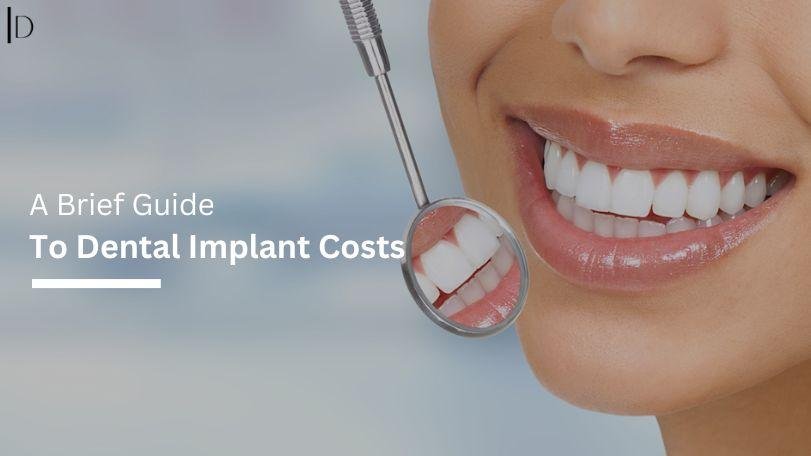Tag: costs of dental implant

Fixed Teeth: A Permanent Solution for a Confident Smile
April 17, 2024
Benefits and Considerations of Conventional Bridge Dental Procedures
April 4, 2024Understanding Conventional Bridge Dental Procedures
Conventional bridge dental procedures are called dental bridges. They are a type of dental restoration used to replace one or more missing teeth. A bridge consists of one or more artificial teeth, known as pontics. These pontics are anchored in place by dental crowns placed on the teeth adjacent to the gap. The crowns act as supports or abutments for the pontic, bridging the space created by the missing tooth or teeth.
The Benefits of Conventional Bridge Dental Procedures
- Restoration of Functionality: Bridges restore the ability to chew and speak properly, improving overall dental function.
- Aesthetic Enhancement: Bridges fill in gaps left by missing teeth, restoring a natural-looking smile and enhancing facial appearance.
- Preservation of Adjacent Teeth: Bridges do not significantly alter adjacent teeth, unlike some other tooth replacement options. This preserves the natural structure of the adjacent teeth.
- Durability: When properly cared for, dental bridges can last for many years, providing long-term reliability and functionality.
- Customization: Dentists customize bridges to match the color of your natural teeth, adjusting their size and shape for a seamless, natural look.
Important Considerations
- Suitability: Conventional bridge procedures can effectively solve the problem of missing teeth for many individuals. However, it’s essential to recognize that not everyone may be a suitable candidate.
- Maintenance: Proper oral hygiene practices are essential. Including regular brushing, flossing, and dental check-ups. These practices help maintain the health and longevity of dental bridges.
- Cost: While dental bridges offer numerous benefits, they can be more expensive than some other tooth replacement options. However, they are often covered by dental insurance to some extent.
- Potential Complications: In some cases, complications such as decay, gum disease, or damage to the abutment teeth may occur. Regular dental visits can help identify and address any issues early on.
Conclusion
Conventional bridge dental remain a reliable and effective solution for restoring missing teeth and improving overall dental health and aesthetics. By understanding the benefits, considerations, and potential outcomes associated with conventional dental bridges, patients can make informed decisions about their oral health care.

Affordable Solutions for Missing Teeth: Exploring Budget-Friendly Options
March 27, 2024Missing teeth, restoring your smile should not come with a big price tag. We understand the importance of providing affordable solutions that allow you to regain your confidence and oral health without financial pressure. Explore a variety of budget friendly options for replacing missing teeth, from traditional dentures to innovative dental implants, we will help you discover affordable solutions tailored to your needs. Say goodbye to gaps in your smile and hello to a brighter, more confident you with our affordable tooth replacement options.

Saving Smiles| Exploring 5 Causes, Treatments & Benefits for Broken Tooth
February 5, 2024A broken tooth can be a worry and painful experience, affecting not just your oral health, but also your confidence in showcasing your smile. Fortunately, advancements in dental care have paved the way for effective broken tooth repair options. Broken tooth repair is a dental procedure designed to restore and renew a damaged or fractured tooth. It brings back functionality to the patient’s smile. Whether the result of an accident, injury, or decay, a broken tooth can cause discomfort, compromise oral health, and impact one’s confidence. Now, we’ll explore the causes of a broken tooth, available treatments, and the benefits of seeking prompt repair.
Causes of Broken Tooth
- Trauma or Injury: Accidents, falls, or sports related injuries can cause direct impact to the mouth, leading to a broken tooth. This can happen during activities like playing sports, falling, or any other situation where the mouth experiences forceful contact.
- Biting on Hard Objects: Chewing on hard substances such as ice, unpopped popcorn kernels, or non food items can lead to tooth breakage. The excessive force applied while biting down on hard objects can cause teeth to fracture or chip.
- Untreated Tooth Decay: Prolonged tooth decay weakens the structure of the tooth, making it more susceptible to breakage. When cavities are left untreated, they can progress and compromise the unity of the tooth, eventually causing it to break.
- Bruxism (Teeth Grinding): Regular teeth grinding, known as bruxism, can apply significant pressure on the teeth, leading to wear and tear. Over time, this constant grinding can weaken the coating and result in fractures or breaks in the teeth.
- Large Fillings or Weak Tooth Structure: Teeth with large fillings or those that have undergone extensive dental work may be more prone to breakage. The presence of a large filling can compromise the structural integrity of the tooth. If the filling is old or poorly done, the tooth becomes more susceptible to fractures.
Five Potential Treatments for a Broken Tooth
- Dental Bonding: Dental bonding is a common treatment for minor tooth fractures. It is often used for fractures caused by trauma or biting on hard objects. In this procedure, a tooth coloured resin is applied to the damaged tooth and then shaped and polished to restore its appearance and function.
- Fillings: If the broken tooth is a result of untreated tooth decay, a dental filling may be used to repair the damage. The decayed portion of the tooth is removed. A filling material is used to fill the cavity and restore the tooth’s structure.
- Dental Crowns: For more extensive tooth damage, such as a large fracture or a weakened tooth structure, a dental crown may be recommended. A dental crown is a custom made cap that covers the entire tooth, providing strength, protection, and restoring its appearance.
- Night Guards for Bruxism: If teeth grinding is the cause of the broken tooth, a dentist may recommend the use of a custom fitted night guard. This oral device is worn while sleeping to cushion the impact of grinding. It prevents further damage to the teeth.
- Root Canal Treatment: In cases where a broken tooth extends into the pulp, a root canal may be necessary. This involves removing the damaged pulp, cleaning and disinfecting the root canal, and then sealing it to prevent infection. After a root canal, a crown is often placed to strengthen and protect the tooth.
Benefits about Broken Tooth Treatment
- Improved Oral Health: Seeking timely broken tooth repair not only relieves pain but also contributes to overall oral health. Addressing fractures prevents the risk of infections and decay that may arise from exposed tooth pulp.
- Enhanced Aesthetics: Dental repairs, such as bonding, crowns, or veneers, go beyond functional benefits. They restore the natural appearance of the tooth. This boosts your confidence and allows you to smile freely without concerns about visible damage.
- Long-term Cost Savings: Investing in broken tooth repair can save you money in the long run. Addressing the issue promptly helps prevent further complications that may require more extensive and expensive dental procedures in the future.
- Restored Functionality: Repairing a broken tooth ensures that you can comfortably chew and eat without discomfort. This restoration of functionality is essential for proper digestion and overall well-being.
- Preservation of Natural Teeth: Certain treatments, like dental bonding and crowns, aim to preserve the natural structure of the tooth. This is advantageous compared to extraction, as it helps maintain the integrity of your natural teeth for as long as possible.
- Boosted Confidence: A healthy, well-maintained smile can significantly impact your self-esteem. By addressing a broken tooth promptly, you improve the physical aspects of your smile. You enhance your mental well-being by feeling more confident and comfortable in social situations. Address a broken tooth promptly to maintain this feeling.
- Customized Solutions: Dental professionals offer a range of repair options tailored to your specific needs. Whether it’s a minor chip or a more extensive fracture, there are personalized solutions that cater to the severity of the damage, ensuring optimal results.
Conclusion
In the journey to broken tooth repair, recognizing the causes is key. Understanding the signs and embracing the available treatment options are also important. Whether your tooth has suffered a minor chip or requires a more extensive restoration, the benefits of timely repair extend beyond pain relief. By promptly addressing a broken tooth, you not only alleviate discomfort but also prevent further damage, ensuring the longevity of your oral health. The array of treatment options, from dental bonding to implants, allows for personalized solutions tailored to your unique situation. Our dedicated dental care team is committed to delivering personalized and effective treatment for broken teeth. They help you regain confidence in your oral health with compassionate care.

Guide to Dental Implant Costs in the UK: Your Questions Answered
January 10, 2024Dental implants are a revolutionary solution for replacing missing teeth, offering a natural-looking and long-lasting alternative to dentures or bridges. But before you embark on this journey, understanding the costs involved is crucial. In this comprehensive guide, we’ll delve into everything you need to know about dental implant costs in the UK, from factors that influence the price to financing options and cost-saving tips.
Understanding the Price Range: The Implant Ecosystem
When it comes to dental implants, a one-size-fits-all price tag doesn’t exist. The cost can vary significantly depending on several factors, including:
- The number of implants required: Replacing a single tooth will naturally cost less than restoring an entire arch.
- Type of implant used: Premium or advanced implant systems may come at a higher price point.
- Location of the dentist: Prices can differ based on the practice’s overhead costs and geographical location.
- Complexity of the procedure: Bone grafting or sinus lift surgeries add to the overall treatment cost.
Breaking Down the Costs: A Look at the Numbers
To give you a clearer picture, here’s a general breakdown of dental implant costs in the UK:
- Single implant: The average cost ranges from £1,500 to £3,000, including the implant, abutment, and crown.
- Multiple implants: Replacing several teeth can cost between £4,000 and £8,000.
- Full-arch restoration: All-on-four or teeth-in-a-day treatments typically range from £10,000 to £20,000.
Financing Your New Smile: Making Implants Affordable
The high upfront cost of dental implants can be a concern for many. Thankfully, several financing options can make your dream smile a reality:
- Dental payment plans: Many practices offer in-house financing plans with low-interest rates and flexible monthly payments.
- Medical loans: Some banks and lenders offer medical loans specifically for dental procedures.
- Credit cards: Using a credit card with 0% introductory APR financing can be a viable option for eligible individuals.
Saving Smart: Cost-Effective Tips for Implant Treatment
Before committing to treatment, explore ways to save on your dental implant costs:
- Shop around and compare prices: Get quotes from several dentists in your area to find the most competitive offer.
- Consider alternative materials: Opting for zirconia crowns instead of porcelain can bring down the cost slightly.
- Look for special offers and promotions: Some dentists offer discounts or package deals for multiple implants.
Beyond the Numbers: Investing in Your Oral Health
While the cost of dental implants is a significant factor, remember that it’s an investment in your long-term oral health and overall well-being. Implants offer numerous benefits, including:
- Improved oral function: Chewing, speaking, and smiling become effortless with the stability and strength of implants.
- Enhanced confidence: A natural-looking smile can boost your self-esteem and social interactions.
- Superior long-term value: Implants are highly durable and can last for decades, making them a cost-effective solution in the long run.
Making an Informed Decision: The Next Steps
By understanding the costs, financing options, and benefits of dental implants, you can make an informed decision about whether this treatment is right for you. Remember to consult with a qualified dentist to discuss your individual needs and receive a personalized treatment plan with a clear cost breakdown. With careful planning and research, you can achieve your dream smile and reap the rewards of improved oral health and confidence.
